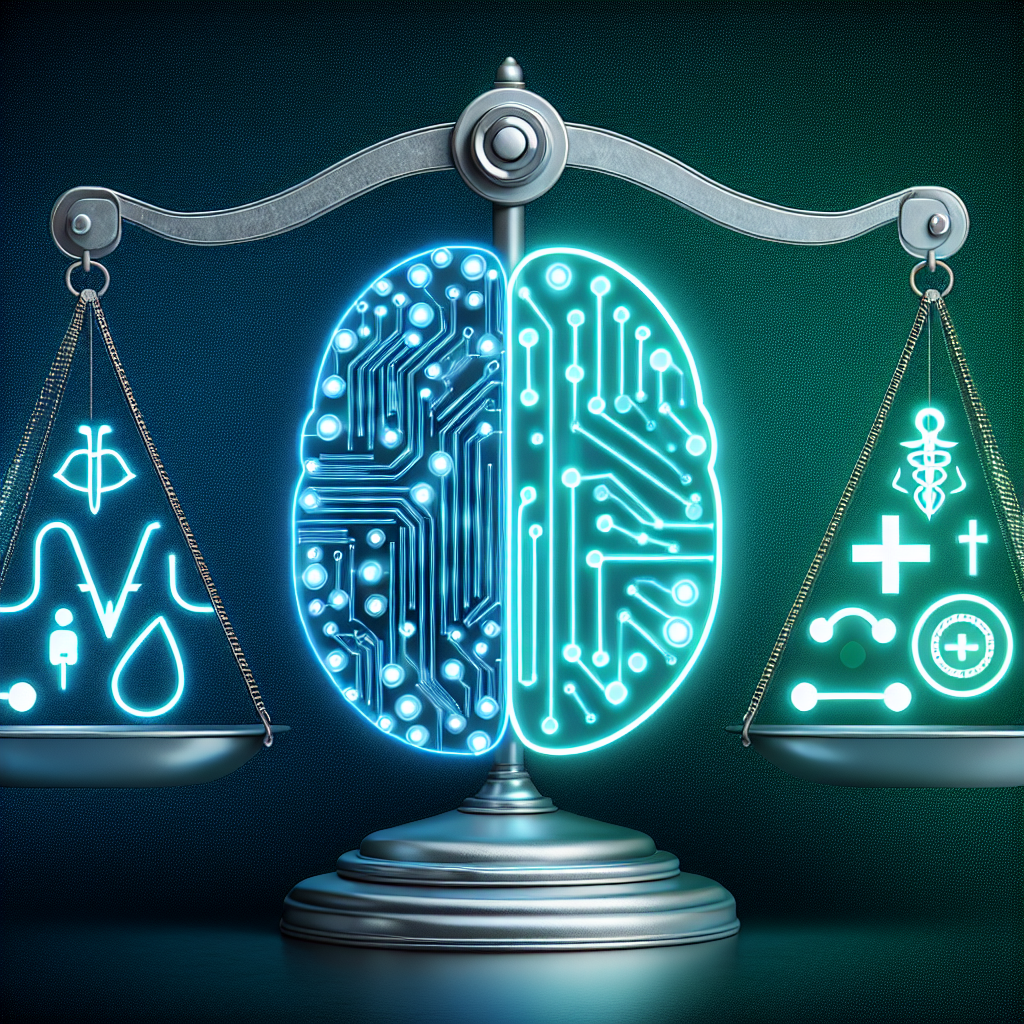The Role of AI in Healthcare Policy Making
Artificial intelligence (AI) has been revolutionizing various industries, and healthcare is no exception. AI has the potential to transform healthcare policy making by improving decision-making processes, increasing efficiency, reducing costs, and ultimately improving patient outcomes. In this article, we will explore the role of AI in healthcare policy making and its implications for the future of healthcare.
AI in Healthcare Policy Making
AI can play a significant role in healthcare policy making by analyzing vast amounts of data and providing insights to policymakers. With the help of AI, policymakers can make informed decisions based on data-driven analysis rather than intuition or guesswork.
AI can also help policymakers identify trends, predict future healthcare needs, and develop policies that are tailored to specific populations. For example, AI can analyze data to identify high-risk populations and develop targeted interventions to improve outcomes for those populations.
Furthermore, AI can help policymakers monitor the effectiveness of healthcare policies in real-time. By analyzing data on patient outcomes, AI can provide policymakers with insights on the impact of their policies and help them make adjustments as needed.
AI can also improve the efficiency of healthcare policy making by automating repetitive tasks and streamlining decision-making processes. For example, AI can analyze large datasets to identify patterns and trends, reducing the time and effort required for policymakers to manually analyze data.
Overall, AI has the potential to revolutionize healthcare policy making by providing policymakers with the tools they need to make informed decisions, improve efficiency, and ultimately improve patient outcomes.
Implications of AI in Healthcare Policy Making
While AI has the potential to revolutionize healthcare policy making, there are also potential challenges and implications that policymakers need to consider.
One of the main challenges of AI in healthcare policy making is ensuring the privacy and security of patient data. As AI relies on vast amounts of data to make informed decisions, policymakers need to ensure that patient data is protected and used ethically.
Another challenge is ensuring that AI is used in a way that is fair and unbiased. AI algorithms can inadvertently perpetuate existing biases in healthcare, such as disparities in access to care or treatment. Policymakers need to be vigilant in ensuring that AI is used in a way that is fair and equitable for all populations.
Additionally, policymakers need to consider the implications of AI on the healthcare workforce. While AI has the potential to improve efficiency and reduce costs, it may also lead to job displacement for healthcare workers. Policymakers need to consider how to retrain and reskill healthcare workers to adapt to the changing landscape of healthcare policy making.
Overall, policymakers need to carefully consider the implications of AI in healthcare policy making and ensure that AI is used in a way that is ethical, fair, and beneficial for all populations.
FAQs
Q: How can AI improve healthcare policy making?
A: AI can improve healthcare policy making by analyzing vast amounts of data, identifying trends, predicting future healthcare needs, and monitoring the effectiveness of policies in real-time. AI can also improve efficiency by automating repetitive tasks and streamlining decision-making processes.
Q: What are the challenges of AI in healthcare policy making?
A: Some of the main challenges of AI in healthcare policy making include ensuring the privacy and security of patient data, addressing biases in AI algorithms, and considering the implications of AI on the healthcare workforce.
Q: How can policymakers ensure that AI is used ethically in healthcare policy making?
A: Policymakers can ensure that AI is used ethically in healthcare policy making by implementing strict guidelines for the use of AI, ensuring transparency in AI algorithms, and monitoring for biases in AI algorithms.
In conclusion, AI has the potential to revolutionize healthcare policy making by providing policymakers with the tools they need to make informed decisions, improve efficiency, and ultimately improve patient outcomes. However, policymakers need to carefully consider the challenges and implications of AI in healthcare policy making to ensure that AI is used in a way that is ethical, fair, and beneficial for all populations.

